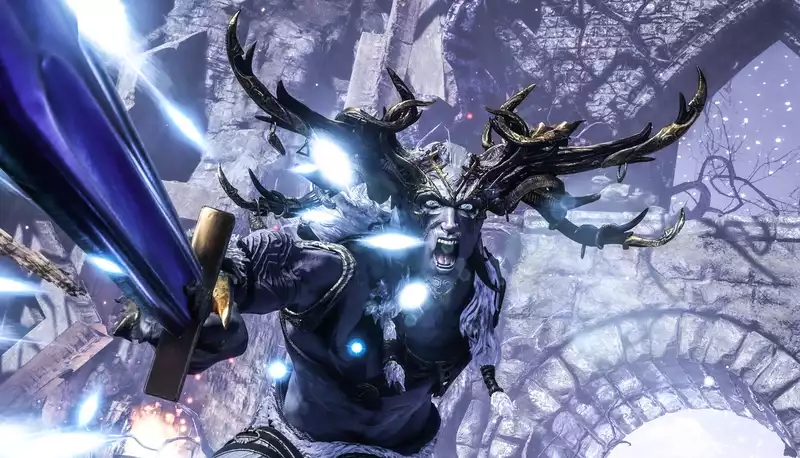In December 2019, Ragnarok Game, the publisher of Rune 2, alleged that Human Head very publicly abandoned the game on launch day and attempted to destroy it by refusing to hand over source code and assets so that another developer could take over the work and sued the original developer, Human Head Studios. Executive producer Matt Candler told me in an interview in June 2020, "They were going to take over the game, but they didn't. 'But they didn't. They actually did everything they could to prevent us from supporting their product."
The lawsuit has now been amended by ZeniMax Media and Bethesda Softworks, who announced in November 2019 that Human Head had gone bankrupt, hired the entire team, and reorganized as Roundhouse Studios.Human Head's first Roundhouse announcement (available via Internet Archive) suggested that the studio approached Bethesda after the decision was made to shut down, but the updated complaint states that Bethesda was "Rune 2" and "Oblivion Song," another abortive game They were actively involved in efforts to abort Rune 2 and Oblivion Song, and had begun "conspiring" with Human Head as late as summer 2019.
"In an act of sheer malice and breach of contractual confidentiality, Human Head secretly provided Bethesda and ZeniMax with a 'key' allowing them to play a pre-release version of 'Rune 2'. This allowed Bethesda and ZeniMax to confirm to themselves that Rune 2 posed a threat to their hit franchise Skyrim/Elder Scrolls. Plaintiffs were not informed of this betrayal," the lawsuit states.
"Two weeks before the release of Rune 2, ZeniMax secretly formed a new subsidiary, Roundhouse Studios LLC ("Roundhouse"), and used that company to purchase all of Human Head's equipment and assume its lease. The equipment contained the source code and materials for "Rune 2" and "Oblivion Song," which were trade secrets of the plaintiffs. Around the same time, in order to complete the merger in effect, ZeniMax arranged for all employees to be terminated from Human Head and hired by ZeniMax. [According to the complaint, ZeniMax took control of Human Head's employees and assets on November 4, and subsequently ordered the suspension of development of "Rune 2" and "Oblivion Song." In addition, ZeniMax sent project leader Christopher Reinhart, "the creative heart and soul of Rune 2," on a two-day business trip to Texas on the day of its release to keep him away from the activity, and the day after Rune 2 was released, a press release announcing Human Head's closure was It is alleged that the actual authors were Bethesda and ZeniMax.
The lawsuit against Bethesda and ZeniMax claimed that both companies were eager to sink Rune 2 because of the threat it posed to the Elder Scrolls series; early reviews of Rune 2 described it as "Skyrim on steroids." The hit video game Skyrim was part of Bethesda's Elder Scrolls franchise, developed and released by Bethesda and its affiliates. The review was a sign that one of the biggest earners for Bethesda and ZeniMax was under threat."
Interestingly, the lawsuit also showed that Human Head was in acquisition negotiations with other companies before it was acquired by Zenimax, and Zenimax wanted Ragnarok Games to be part of that process and continue development of Rune 2: " Zenimax was the only potential acquisition target that demanded confidentiality and would not allow further development work on "Rune II" or "Oblivion Song."
The lawsuit seeks "not less than $100 million" in damages, as well as restitution for development costs, punitive damages, attorneys' fees, and other penalties. A representative for Bethesda declined to comment on the case.
Despite these troubles, production of Rune 2 continues under the control of Studio 369, a new development company established by Ragnarok Games earlier this year. Its name is Rune 2: Decapitation Edition, with an updated combat system, new abilities, dungeons, progression, and NPCs, will be available on Steam on November 13.
.

Comments